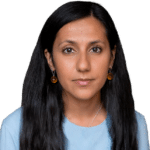MED Panels

Margherita Stancati
Foreign Correspondent, Wall Street Journal

Dlawer Ala’aldeen
Founding President, Middle East Research Institute (MERI)

Ranj Alaaldin
Director, Middle East Peace and Security Forum, Visiting Fellow, University of Oxford

Lahib Higel
Senior Analyst, International Crisis Group (ICG)
Over two decades after the US invasion and the fall of Saddam Hussein, Iraq faces the challenge of rebuilding resilience while pursuing lasting stability, social and economic growth, and stronger global partnerships. Although the post-regime change years were marked by significant military, political, and social turmoil – including the rise and defeat of ISIS – Iraq is now showing promising signs of recovery, with recent gains in security, economic and political stability, and a growing sense of autonomy. Yet, Iraq’s path forward remains complex. Baghdad faces persistent security threats, an economy still heavily dependent on hydrocarbons, occasional social unrest, and serious climate challenges. Balancing international alliances further complicates matters, as Iraq’s relations with the US and Iran are particularly sensitive amid escalating regional tensions.
How is Iraq managing these intertwined national and international complexities? What lies ahead for its historic partnerships, expanding engagement with rising powers like China, and its pursuit of greater independence from US military support? And how is Baghdad reimagining its regional role amid tensions that impact its territory both directly and indirectly?
Subscribe to MED newsletter
Keep in touch with the conference. Don't miss any update.

